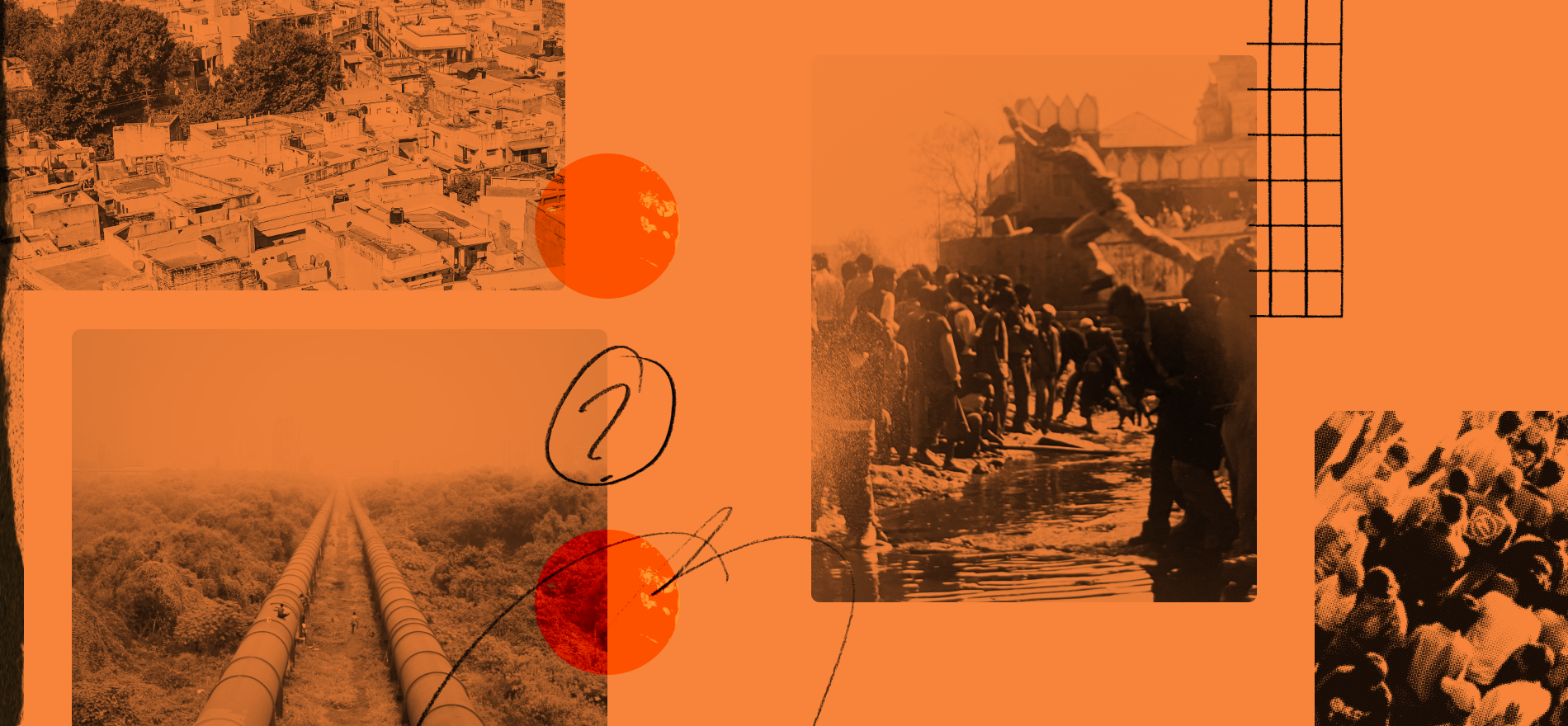Earlier this month, Meedanis old and new came together at the International Journalism Festival in Perugia, Italy, where we experienced a striking mix of spectacular scenery and justifiably grim talk about the future of journalism and democracy. But visiting with colleagues dedicated to exposing and understanding the disheartening realities of our current moment was nourishing for the soul. Likewise, our time at the U.N. Commission on the Status of Women (CSW69) in New York allowed us to connect and deepen our relationships with like-minded organizations from far and wide.
This blog post was adapted from the April 2025 edition of our monthly newsletter. Subscribe to the Checklist today.
Groundbreaking reporting from friends throughout the Larger World
In Perugia, we heard accounts of post-Assad Syria from our colleagues at the Syrian Archive. We squeezed into a packed auditorium for a presentation on Forensic Architecture’s interactive geospatial mapping project, “A Cartography of Genocide,” a mixed-methods analysis of Israel’s military campaign in Gaza. On the final day, we applauded colleagues as they shared new ways of collaborating with their readers through cocreational news media.
For our own part, Meedan Editorial and Policy Lead Ellery Roberts Biddle moderated a discussion on tackling human rights issues in climate coverage. Panelists spoke about reporting on human rights abuses in China’s solar panel supply chains, allegations of green colonialism imposed by Sweden’s clean steel industry, and the intersection between climate-driven displacement and the armed conflict in Sudan.
The fate of fact-checking in 2025
Meedan CEO Ed Bice participated in a featured panel on threats facing fact-checkers. Front and center in the discussion was the specious idea — peddled by a growing chorus of political critics and corporate titans — that fact-checking somehow causes censorship.
“The predictable and hypocritical censorship narrative surfaced circa 2016,” Bice told the audience. “We [received] letters from the U.S. House Judiciary Committee accusing us of violating Americans’ First Amendment rights for putting out on our platform fact-checks that urged people not to drink bleach.” Tai Nalon, the founder and editor of Brazil’s Aos Fatos, a steadfast Meedan partner, described similar narratives that surfaced in the ongoing legal threats swirling around her organization.
It bears repeating: By definition, fact-checkers are not censors. Fact-checkers seek to help people understand what is and isn’t true, typically by providing important contextual information. Yet politicians and corporate leaders like Meta’s Mark Zuckerberg say otherwise. Their claims are not only false, but they are also dangerous. Fellow panelist Ana Brakus, who leads Faktograf.hr in Croatia, reported that she’d recently received a piece of used toilet paper in the mail. A few weeks back, we learned that our partners at Tempo in Jakarta, Indonesia, had found a severed pig’s head at the front door of their office.
As legal and physical threats mount across the world, intrepid journalists like Brakus and Nalon persist in their work — and they inspire us to continue ours.
Meedan at the U.N. Commission on the Status of Women
In March, Meedan Program Director Shalini Joshi attended CSW69 in New York. During two panels, Joshi shared our community-driven work on gendered disinformation in South Asia and discussed how homogenous and nonrepresentative datasets are currently being used to train prominent AI models while Indigenous knowledge and underserved languages are either excluded or unethically incorporated. This disconnect underscores the need for local, comprehensive datasets, which are essential for the creation of technology-powered solutions that prioritize communities over corporations.
The dialogue: Where do we go next?
With Meedan were panelists from the World Health Organization, the World Bank, UNICEF, and the Sexual Violence Research Initiative. Together, these speakers discussed the collective progress we’ve made toward understanding the scale, causes, and consequences of violence against women — and importantly, what techniques are most effective at preventing it. Engaging directly with survivors to center their experiences has resulted in research and policy initiatives that are more nuanced, grounded, and impactful. The panelists agreed on the importance of building a robust ecosystem for responding to gender-based violence by directly funding feminist organizations, fostering robust global partnerships, and pursuing multisectoral solutions.
We collaborated with 53 partner organizations worldwide to design and carry out our 2024 elections projects. We extend special gratitude to our lead partners in Brazil, Mexico and Pakistan, whose work we highlight in this essay.



The 2024 elections projects featured in here would not have been possible without the generous support of these funders.












